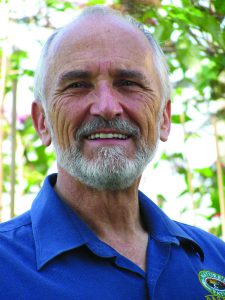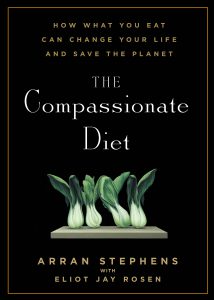By guest blogger Arran Stephens, founder of Nature’s Path Foods, North America’s largest organic breakfast food company, and author of The Compassionate Diet: How What You Eat Can Change Your Life and Save the Planet
Genetic engineering artificially and imperfectly alters the germ of life latent in the seeds that have sustained us all for aeons and aeons on this fragile Mother Earth, with many known and yet-unknown consequences.
Allowing corporations, governments, and scientists the power to play God with our food supply on a massive scale, and then keep this huge secret hidden from the populace, is the worst form of hubris and subtle tyranny. Sooner or later, nature sends her debit, for which we all have to suffer, and wonder why.
This issue has polarized the food world.
On one side are the corporations that stand to profit monetarily, acting (knowingly or unknowingly) under the guise of common good, of ending world hunger, of reducing pesticides and advancing science (promises which genetic engineering has failed to deliver on). On the other are the too-often unheard voices demanding transparency, proof, freedom, justice, sustainability, and health.
We, the latter, having looked at both sides of the issue, have decided to take a stand for the greater common good. No, we’ll keep genetically engineered foods that now have permeated up to 85 percent of supermarket shelves at bay and out of our lives.
How?
We choose the organic and regenerative way of farming, processing, and eating. Do it as locally as possible. Grow, and go, organic!
Vegetarianism, like ethical living in general, is foundational to spiritual growth and the development of universal consciousness and love. According to many of the world’s wisdom traditions, meat eating is antithetical to achieving these states of expanded awareness.
In some of these ancient spiritual traditions, vegetarianism is unequivocally advocated, yet it is a sad fact that many modern-day exponents either have forgotten or deny the original teachings. Examples are the utterances of Siddhartha Gautama—the Buddha—that were written down in the Pali language by his direct disciples; several Judeo-Christian texts, written in Aramaic, that were excluded from what became the King James version of the Christian Bible; various esoteric Taoist teachings; and the writings and living guidance of spiritually realized human beings variously called masters, saints, prophets, and sages. Many diverse traditions caution that our full human/divine potential cannot be realized if we indulge in animal foods.






I have for a long time be buying organic, not for the reasons you give, although they are good reasons. I buy it because I want to have selenium in my foods so I can stay healthy, I believe that a healthy soil, is a healthy plant, is a healthy body. It is getting harder and harder to find organic that I can trust these days though as everyone is on the band wagon and claiming to be organic, some are just not! As I age and my eyes are not as good as they once were, I find I have to take my glasses out to read all the jargon, this is very frustrating as the writing is also getting smaller because we want more information. I have decided, enough is enough, I’m going back to growing my own, this way I know where it comes from and I get it fresh every time. Of course it also cuts out trips to the supermarket so saves petrol, a win win situation
I completely agree with you, especially after reading the article concerning the pesticide and produce industries not wanting us to have access to the actual residues on produce. I started my garden this year after not having one for a few years. I will also try to eat more seasonally.
Like many people I was a vegetarian for years. I appreciate the difficulty of being one with all conscious life while trying to chow down on it at the same time. The pure consciousness needs onl the God Force from nourishment, yet meat eaters can do okay. I’m one of them now.
http://thehomeremediesreview.com
Great article, love Arran’s philosophy. I find it to be very refreshing from someone in the food business!
I buy organic, local, sustainable produce, grow my own when I can, recycle and compost as much as possible. And I have to say I’m really tired of being told that I’m not eating “ethically” or I that I can never “attain my full human/divine potential” because I like a good grass-fed burger once in a while.
You got to push itthis esestnial info that is!